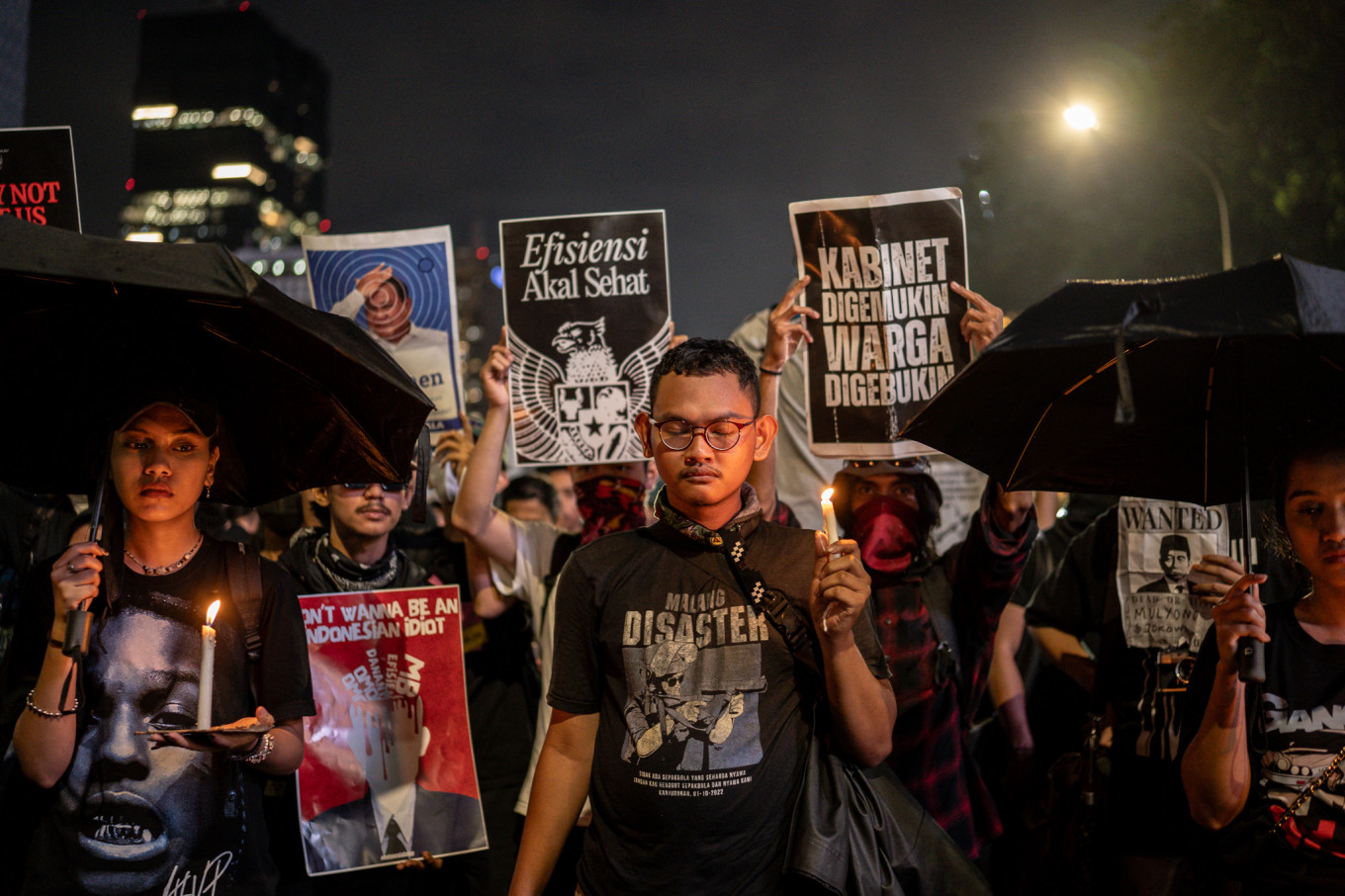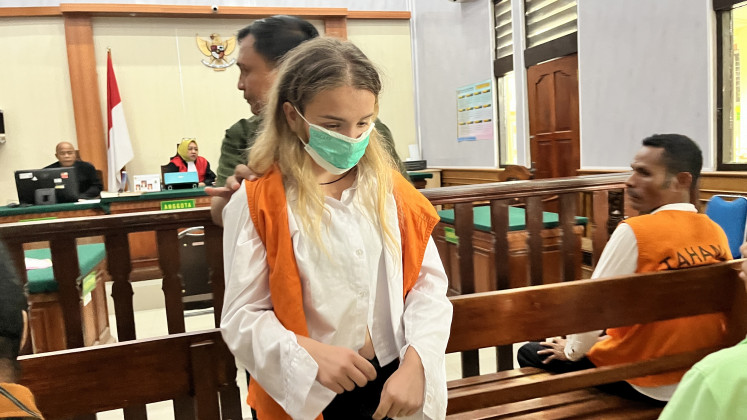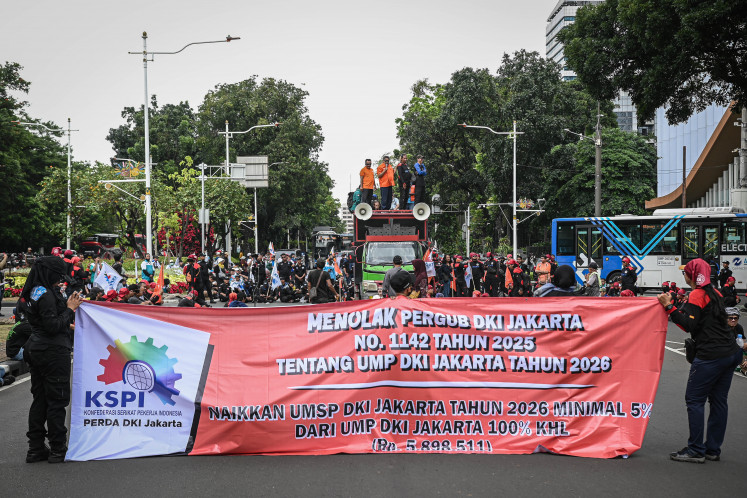Popular Reads
Top Results
Can't find what you're looking for?
View all search resultsPopular Reads
Top Results
Can't find what you're looking for?
View all search resultsMinister dismisses creeping authoritarianism concerns
His comments come as President Prabowo Subianto’s five-month-old government faced a second round of widespread public demonstrations in as many months, amid efforts to expand the scope of military involvement in civilian life.
Change text size
Gift Premium Articles
to Anyone
H
uman Rights Minister Natalius Pigai has dismissed concerns about a resurgence of New Order-style authoritarianism, describing such claims as nothing more than imaginative and baseless accusations.
His comments come as President Prabowo Subianto’s five-month-old government faced a second round of widespread public demonstrations in as many months, amid efforts to expand the scope of military involvement in civilian life.
“It is excessive, unfounded, and purely insinuative to suggest a militarization of the state or a return to New Order authoritarianism,” Pigai told a press conference in Jakarta on Tuesday, state news agency Antara reported.
According to the minister, such concerns stem from what he termed “memoria passionis”, or a psychological fixation on past suffering associated with historical events.
He claimed that such fears are being artificially amplified by overblown media coverage and opinion pieces, which paint a grim picture of an impending militarized government, authoritarian rule, human rights violations and the erosion of civil liberties.
Pigai further rejected any suggestion that the current government resembles the Soeharto-era New Order regime, arguing on the contrary that Indonesia is now experiencing what he called a “democratic surplus” under Prabowo.
As evidence, he pointed to the success of opposition forces in winning several key positions in the 2024 regional elections, including in Jakarta, and claimed that the state showed a willingness to engage with protest groups in the recent so-called Dark Indonesia demonstrations.
But he said nothing about Defense Minister Sjafrie Sjamsoeddin’s outlined plans to increase the number of civilian positions that active-duty military personnel are allowed to hold in public office, during the deliberation of the Indonesian Military (TNI) Law revision this week.
Prior to his appointment as minister last year, the former human rights activist from Papua had touted himself as “a soldier who often gets called up” by President Prabowo when the need arises.
In response to a recent remark by a former minister that Prabowo was “allergic” to protests, he came to the President’s defense by outright refuting the accusation.
Meanwhile, Pigai’s early work as minister has been criticized by some lawmakers as lackluster, especially measured against his demand for a larger work budget.
His comments also fly in the face of recent public unrest, fanned by wholesale austerity measures, misplaced state priorities, revelations of high-profile corruption cases and a growing cost of living and unemployment crisis.
Last week, Amnesty International secretary-general Agnes Callamard, who had arrived in Indonesia on a working visit, said the government was “thin-skinned [and] does not understand the limitation of executive power”.
Authoritarianism in Indonesia, she added, focused on “increasing militarization and [...] targeting indigenous communities” around lucrative mining projects.
During her visit, Callamard spoke with executive and judicial officials to raise concerns that the inability of successive administrations to resolve past cases of human rights abuse was “poisoning the present”. (tjs)











